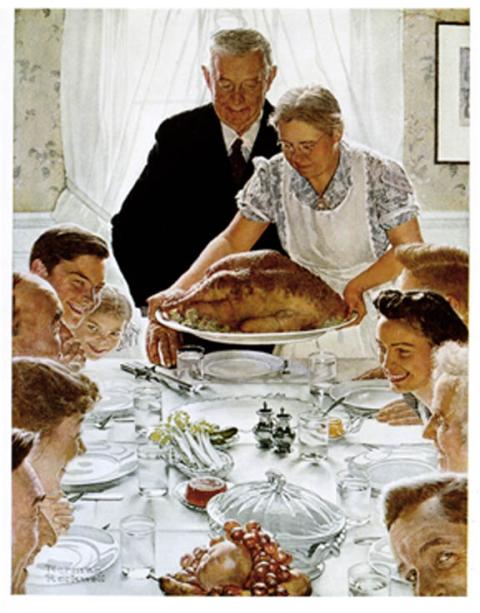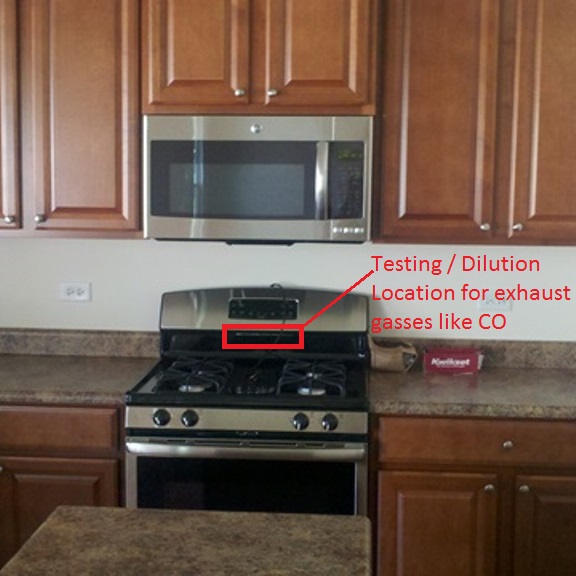 Wow how quickly this year has passed; with most of us getting ready to sit down and enjoy a great Thanksgiving dinner next week followed up by the Christmas Baking season. With that we would like to remind everyone with a gas stove to please use the exhaust vent (or open a window if it doesn’t vent outside) so that everyone can enjoy it, especially the cook that baked such a wonderful meal.
Wow how quickly this year has passed; with most of us getting ready to sit down and enjoy a great Thanksgiving dinner next week followed up by the Christmas Baking season. With that we would like to remind everyone with a gas stove to please use the exhaust vent (or open a window if it doesn’t vent outside) so that everyone can enjoy it, especially the cook that baked such a wonderful meal.
The reason? Well if you have ever wondered why your or someone else’s face gets slightly flushed, you start developing a headache or are feeling so tired after cooking for a period of time, well it might be because your oven is releasing Carbon Monoxide (CO). The catch is – it is perfectly allowable as oven manufacturers are allowed to build units which release up to 800 parts of “CO” into the ambient air and still be declared perfectly safe per ANSI Z21. The reason, well it is a two-fer as they first off assume that you won’t be using the oven enough to cause issues & they assume that you will be running an actual exhaust vent or have a window open.
Unfortunately, or fortunately depending on your point of view, age doesn’t really have anything to do with how well an oven performs as many new ones have tested out worse than older ones. The best thing one can do is make sure you do besides running your exhaust (generally with a window slightly opened), having a CO detector that tells you how much is in the air, making sure your unit is properly maintained / cleaned, & nothing impacts the flames when used (check that bottom drawer). (For more – Combustion Process)
Testing:
Should you have your unit tested? I know I am going to upset a few “energy auditors” out there, but the answer is probably not or at least not by them. The reason, we’ll all they can really do is say that yes your unit is generating X PPM of “air free CO” (assuming they are doing the proper test), but not the reason or how to fix it.
If you think there might be an issue you should call in the proper person who can not only test it but help get it corrected. To put it in easier terms, you generally wouldn’t go see your family doctor about a toothache, but rather you would go see your dentist who specializes in it.
With that though, this is something you should have checked yearly by the company servicing your furnace & other gas appliances. The catch is informing them that you want this done – you don’t just go to a dentist to look at half your teeth do you? One also doesn’t just assume that one visit to the dentist with a congrats you have no cavities means you will never get any right?

The readings for the oven should be obtained from the flue opening which is normally found right in the middle of the stove underneath the clock and controls as shown in the picture. In order to get an “air free” CO sample the probe must be inserted into the flue. CO levels will spike during the initial fire which is pretty normal. As the oven starts to heat up, it will quickly reach its steady-state burn which allows for the normal combustion process to occur which will give one the normal level that is measured. This is why it is very important that they keep the door closed on the oven while performing the test but also why one should not try heating their house with the oven.
 Standards – as mentioned above, ANSI calls 800 “air free” PPM acceptable while others like BPI create their own which says – no worries if you are at 100 PPM or less. Between 100 to 300 you need to install a CO Detector & above 300 have the unit serviced prior to the contractor doing work… Ahh but what happens if the “servicing” doesn’t correct it? Well if the unit is greater than 300 ppm after service, install a 25 CFM continuous or 100 CFM intermittent exhaust fan (which is code anyways). Standards – as mentioned above, ANSI calls 800 “air free” PPM acceptable while others like BPI create their own which says – no worries if you are at 100 PPM or less. Between 100 to 300 you need to install a CO Detector & above 300 have the unit serviced prior to the contractor doing work… Ahh but what happens if the “servicing” doesn’t correct it? Well if the unit is greater than 300 ppm after service, install a 25 CFM continuous or 100 CFM intermittent exhaust fan (which is code anyways). |
In Closing:
Whether you have or have not had your unit serviced &/or it tested out fine, please make sure you run your exhaust vent. Not only will this help eliminate any issues that can pop up from the oven, but also eliminate the cooking greases & steam which can damage other parts of the kitchen. With that here is to a great Thanksgiving with no red faces or headaches caused either by the cooking or other family members & the tiredness that occurs be caused by the great meal & the good times shared.

